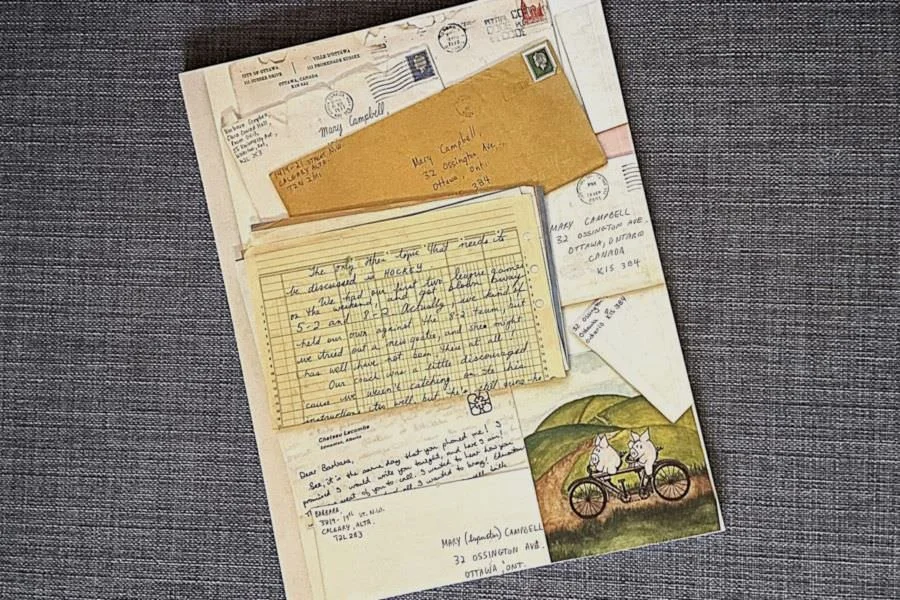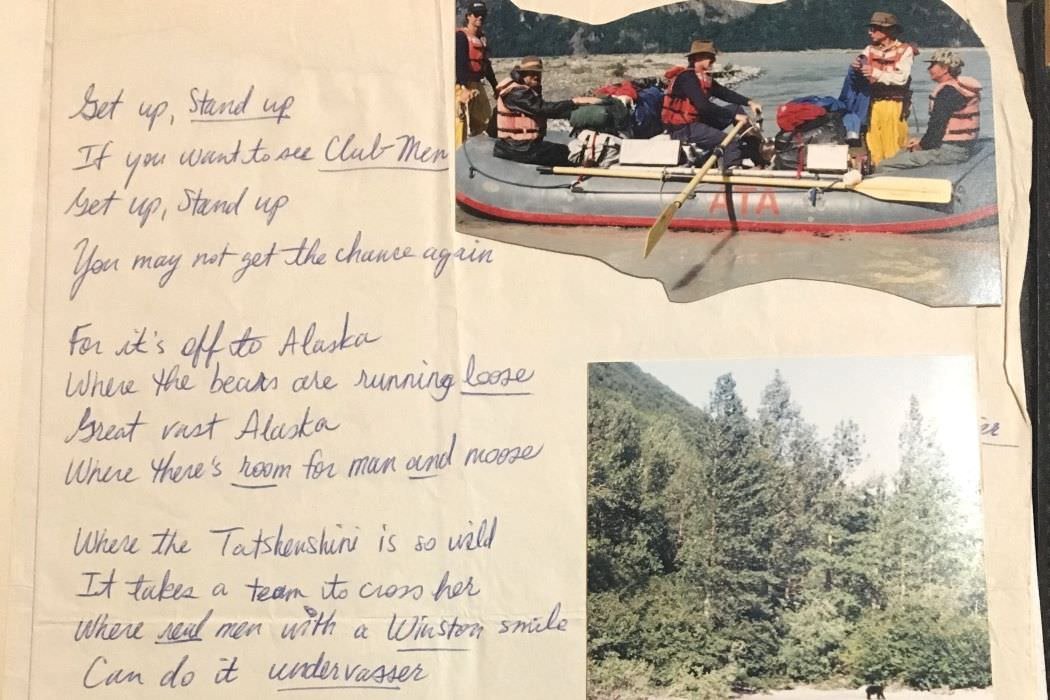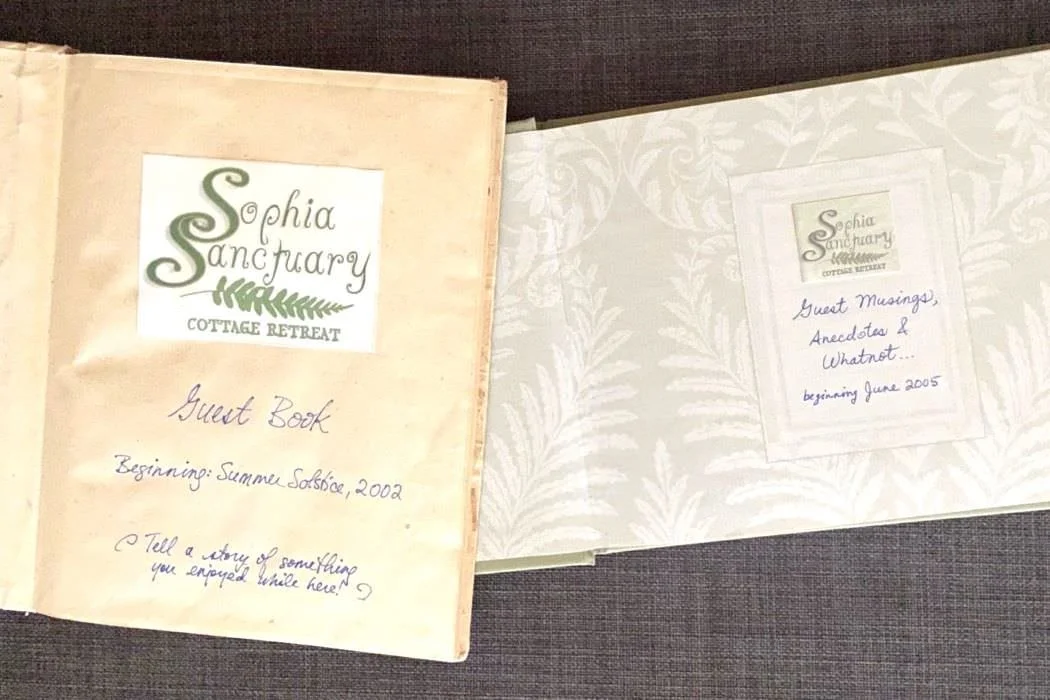Writing Life Stories
Here’s a look at some short formats I’ve used to write stories about my family, ancestors, and life events. Check out my “take-aways” learned in the process!
Short Stories
My favourite way to share occurrences in my life is in the form of short stories. Most of my true-tales involve a bunch of ups and downs as I find my way through a situation. They may be funny to look back on, but were sure stressful at the time!
I find that most of the stories I’m drawn to share are:
tales from childhood
adventures I never meant to have
experiences with ‘heart and meaning’ for me
One story that’s significant in my life is when I went to help my mother, who was in a bad situation in an elder-care residence. I lived thousands of miles away, but managed to go see what I could do. This story of helping my mom is included in my stories blog.
Take-Away: A short story is a good way to tell the ups and downs of life experiences.
Life Story Books
One of my favourite formats to write about someone’s life is a soft-covered book the size of a magazine, with photos on glossy pages.
I first used this format when I created a tribute to my late father. Because he died quite young, my memories of him were from my childhood and young adulthood. I included photos from times we spent together, family vacations, with his friends, and of home, office and sports.
The idea came to me while I looked after my friends’ dog at their place. They were animators who also made cartoon books. Seeing their studio gave me the notion to make a magazine-sized book with photos.
It warms my heart to see handwritten notes he and I gave each other when I was young. I took digital photos of some that I kept, and included them in the book.
I gave copies to my cousins and siblings, who love the reminder of my father’s kind ways. It’s neat to hear that my nieces and nephews take interest in the grandfather they never got to meet.
I went on to make a magazine-book about my mother, uncle, friends and others. Most include elements of biography, memories, and family history – to share someone’s overall life story. Each book has a unique combination and style. Some are about my beloved pets!
Take-Away: A magazine-length book is a good way to showcase people and shine a spotlight on their life, to help them be remembered.
Family History
I find this to be a great format to capture our family history and appeal to my relatives of all ages. I make a two-page spread about each ancestor in one family branch, and compile these into a magazine-book. There are photos on each page, and an overview with a family tree to bring it all together.
My relatives like being able to leaf through, see our background at a glance, and learn about our ancestors and the lives they led.
Ancestor Profiles
My siblings and I didn’t think our parents had any records of our ancestors. Long after their passing, my sister found some family history files and photo albums in her storage locker!
My father kept a file with documents about our grandfather’s career, awards, and volunteer work. It told me much more about him than I’d known! I wished to share the highlights with my cousins and siblings. So, I made a list and timeline which I formed into a résumé for our grandfather. All on one page, it highlights his career achievements and roles in society. We knew he was mayor of our city, but this brief piece expands our view of his life (beyond his role as our dear grampa!).
My great-grandmother was a bit of a mystery. We had only heard of her as ‘Gan-Gan’. My uncle said she was such a stern grandmother, that they also called her ‘The Iron Lady’. Through my ancestry research, I was able to find out about her childhood as young ‘Bessie’, her teaching and volunteer work, marriage and elder years. I wrote a two-page profile with photos of her house and church and such, to include in a family history about our maternal ancestors.
It gives our family a well-rounded view of her life. I didn’t have a photo of Gan-Gan at the time, but later my sister found one in her storage, so now we know what she looked like too!
Take-Away: Writing a short summary of an ancestor’s life helps to spark an interest in family history among relatives of various ages.
Memorial Essays
When a loved one passes away, it feels healing to me to write about their life and qualities. I wrote an essay about my mother to shine a light on her unique character and life interests. When it was published in a nationwide newspaper, I felt good to share this tribute more broadly than just in her circle of friends.
A few years later, I wrote a piece about my uncle to post on the memorial page I set up for him online. It’s longer than his newspaper obituary, and gives a greater feel for his life and personality.
I remember when I sat at my desk to write, my heart still ached that my close ones were no longer in my life. It felt good to write and publish the essays, to honour each of them with a tribute. It helped me focus on their qualities, memories of them – and appreciation – beyond my personal loss.
Take-Away: To write an essay about someone’s life, or about your personal experience, can be healing – among other reasons to tell life stories.
Letters
Letters in My Life
Letters hold the seeds of stories. A letter may tell a story on its own. A set of letters may tell a larger tale when taken together.
My sister and I used to write letters to one another, and still send cards now and then. In our teens and early twenties, letters were the way to go.
In recent years, my sister began a project to go through old letters she kept. She would read one each evening, to either keep, toss, or mail back to the sender if possible.
She sent me some letters I wrote at age eighteen. When I read them, it takes my back to the time of my first job and apartment away from home. I laugh to be reminded of things that happened to me, as told by my younger self!
It made me curious to open the box of letters I saved. I had moved it with me from place to place, but not opened it over all the years. I found a packet of letters my sister sent me that same summer! I enjoyed reading our conversation back and forth, and wished to share that experience with my sister. So I took digital images of selected pages, and put them in order of send-and-reply. I made a book for her birthday, and a copy for me as keepsake.
Letters from Ancestors
In doing online research about our family history in a certain region, I came across a university student’s paper. It was about rural life in that time and place – based on letters my ancestors wrote! What an exciting find.
I contacted the university archive, but they were closed (even virtually) to the public for some time during the pandemic. When I did reach the archivist, they were able to scan and send me copies of a few letters. My paternal grannie’s grandmother and her family wrote them when they first came to Canada. They describe their new lives to their brother who stayed in Scotland. One letter tells of their journey over by boat, another about setting up their farm, and later making maple sugar.
When I travel to the archives to see the full set of letters, I’ll learn much more about their lives and be able to weave a story to share.
Letters to the Departed
My maternal grandmother and I shared a special relationship. When I was a young teen, I’d stop by her apartment on my walk home from school. She’d tell me stories while we shared a snack. I treasure those memories.
Although she told me some about her younger days, of course I just saw her in her elder years as my Granny.
Now I reflect on what she shared, while I research my family history. I can understand some of the troubles she went through in addition to her happy times. If she were with me now, I’d have more to say, questions to ask, and updates to share about family.
So I wrote her a letter to express my compassion, and to relay family history and stories to my current relatives.
Take-Away: Letters from the past hold story fragments you can knit together. Even now, a letter is a way to share stories and family history, and express your appreciation to loved ones.
Poems
Sometimes I’ll write a poem to interpret a life experience, or show my appreciation for others.
For Friends
Decades ago, I went on a wilderness river rafting trip in Alaska. Over the 11 days, the members of our small group formed a strong bond of friendship. Early one evening, while resting in my tent, I wrote a multi-verse rhyming poem about our group’s adventures. I read it aloud to the gang around the campfire. They loved it! After we went our separate ways at the end of the trip, I added photos and sent each person a copy. To read it now brings me back to the gravel riverbanks, the rush of glacial water, and the smiles of my fellow paddlers.
About Relatives
When my mother was on her own after my father died, I wrote a poem to show what I saw in her character. It spoke of her determination, and sense of justice and fairness. I gave it to her, framed, for her birthday. Years later, I read it aloud at her memorial gathering. It felt good to honour her in this way.
In researching my family lines, I saw that a cousin of my father’s had written her own farewell poem. Her family posted it with her online obituary. It gave me a good picture of who she was. She wrote about how much she appreciated life and those around her. Not only did this put the pen in her hands, but she was able to say that she enjoyed a full life. It showed her positive personality, and likely helped provide closure for those near and dear.
Take-Away: It can feel good to express yourself through poems about your experiences and people in your life.
Guest Books
For a few years, I ran a cottage retreat beside a wilderness park. Many guests came from far away to spend a special time on Canada’s west coast. I gave visitors their space and privacy, yet didn’t wish to have only a list of names and brief notes of “thanks for the stay”. So, I provided guest books with open pages and invited visitors to write about their experiences during their stay. It’s wonderful to read of their hiking adventures, whale sightings, quiet reflections – and visits from my cat!
Now I treasure these guest story-books, years after moving on from that place.
Take-Away: If you invite people to share their stories and provide a way, they tend to respond (often with enthusiasm!)
written by Barbara L Campbell, 2024








